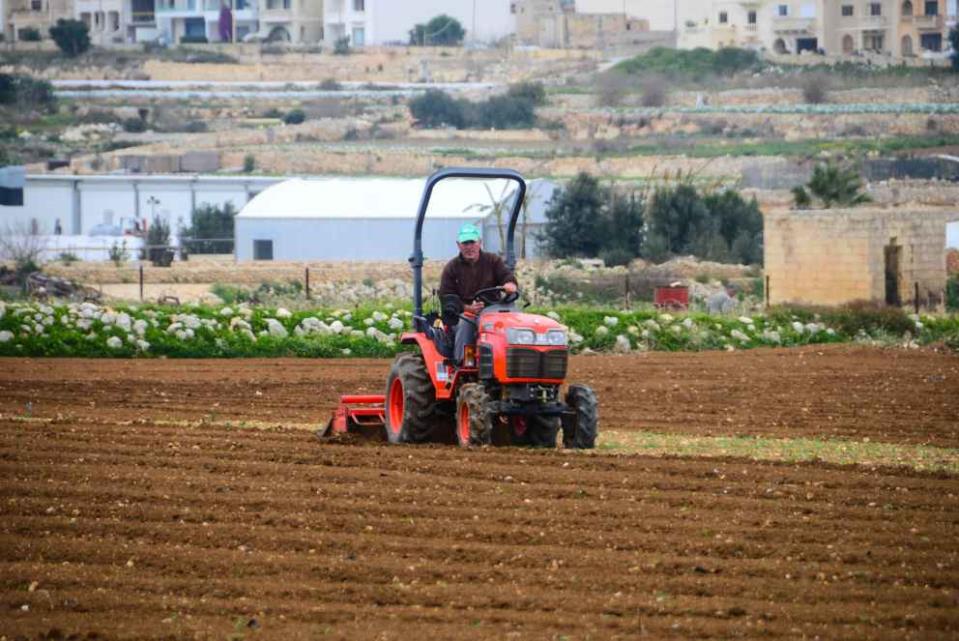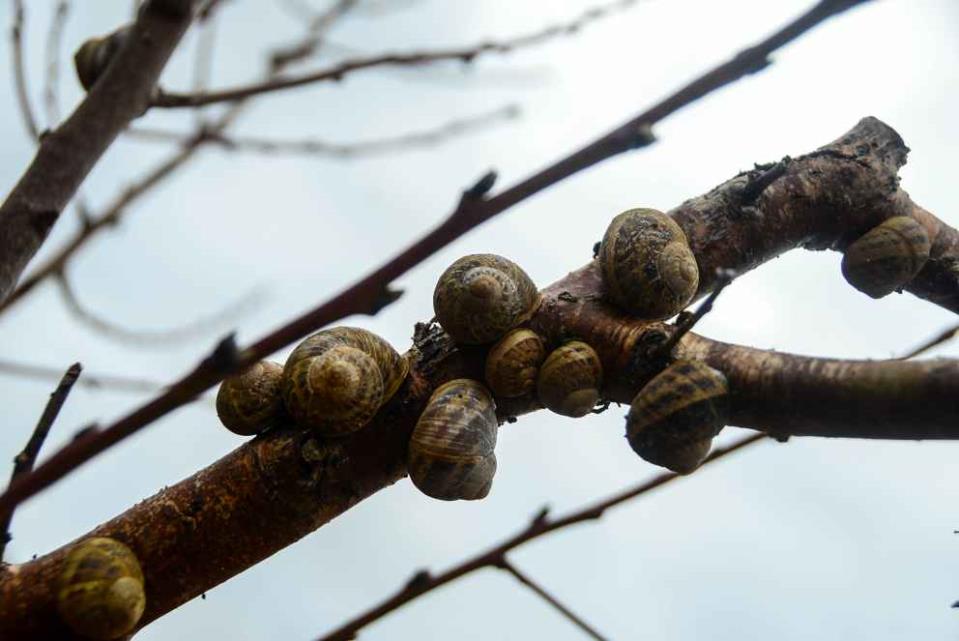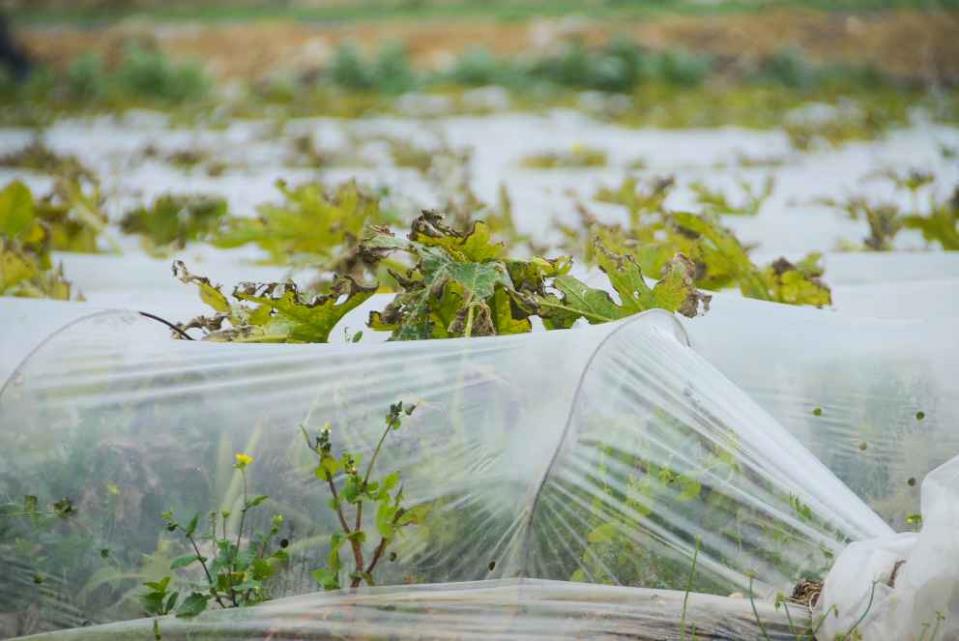Maltese farmers are literally praying for rain as the unusual dry spell and abnormally high temperatures are wreaking havoc with their crop. The Malta Independent met with two Mgarr farmers earlier this week, who explained how the lack of rainwater has left the soil dry and their water reservoirs practically empty and is already having an effect on their crop.
Joseph Muscat’s family has worked the fields for generations. He mostly grows greenhouse tomatoes for the local market but he also grows summer fruits like melon and watermelon.

“We have only had around 7 inches (177mm) of rain so far this winter when the average for this time of years is around 500mm.” He points to a number of farmers tilling their fields with tractors. “You would not normally see that at this time of year as the soil would be wet and the tractors would get bogged down. But the fields are dry this year.”
Mr Muscat says rain is vital to farmers. “Nothing grows without it. We do have reservoirs and boreholes but that is nowhere nearly enough. Rain provides much of the water we need to grow our crops. It is part of the natural cycle and we cannot do without it.” He gestures towards the edges of the fields, normally lush with wild weeds. “They are completely dry. This is abnormal. Something is definitely changing,” he says.

Rainwater is vital
“Agriculture depends on rainwater. It is as if someone turned off the switch.” Rainwater is not only vital because of the large volume needed but also because of its properties – a lack of salt and a good pH level, he says. “The best water is the kind that the Lord provides.”
The farmer explains that rainwater accumulates under the soil surface. The ‘tira,’ as farmers call it, is a level of moisture in the soil. It is vital because it keeps the crops hydrated, making it fertile even in the long, hot summer months. “A friend of mine was telling me earlier today how he was clearing vines and found that all the roots were completely dry.”
Strawberry farmer Pawlu Camilleri joins in. “People may say it is better if it doesn’t rain but for us it is a lifeline. Agriculture is nothing without water.”

Mr Camilleri has farmed the fields below the Mgarr church for over 30 years. Drawing from his experience, he can already tell that his strawberry plants will grow smaller this year and produce less fruit. “The strawberry plants are already showing that they do not have enough water. We try to help with drip irrigation but it is never enough.”
He says in usual conditions, crops start growing almost immediately, drawing water from the soil. “We always have to pump some extra water but the situation this year it is a mess. The earth is so dry that growing crops in winter will be hard, let alone in summer.”

Insects thriving
The changing weather is also having other effects. Joseph Muscat explains that the warmer weather is not helping in keeping disease-carrying insects at bay. “The cold usually serves as a natural barrier way to keep insects away, but this is not happening this time round.” He also points out towards the almond trees – their flowers have already bloomed. “We have never seen this before.”
The early bloom is also expected to affect bee populations. “If there are no flowers (later on) the pollination process, which is also vital in agriculture, will also be affected.”

Mr Muscat explains that many farmers have invested greatly, also with the help of EU funds, to build water reservoirs. “My brother and I invested in reservoirs that can hold up to a million cubic litres of water but we would need to use anything between 3 to 3.5 million cubic litres a year. Normally the rain fills the reservoirs two or three times a year and we would only need to add a small amount on top of that. At this time of the year we would have normally emptied them and the rain would have filled them up again for a second time. They are filled up for a third time in the period of March and April. But you can see the bottom, they are practically empty.”

Reservoirs empty
Mr Muscat says agriculture cannot be sustainable without water. “What will happen to the last 500 full-time farmers in Malta? Agriculture is like a pyramid with farmers as its base. If farmers stop the pyramid collapses.”
Mr Camilleri adds: “We will definitely suffer in the summer months because we will not have the necessary rainwater.” Farmers, he says, are also allowed to pump water from valleys but these are also at a lower level than usual.

The Malta Independent also spoke to 91-year-old farmer Anglu Mifsud, who says the last time the country experienced similar conditions was almost 70 years ago. “It was two or three years after the war had ended. I remember working the fields with my brother. It was hot and dry and all the crops were shrivelled and dying. All the wheat was destroyed.” Mr Fenech said, however, that abnormal weather conditions were not unusual, mentioning a couple of cases where the exact opposite of the current situation had happened, with people even being killed in the floodwaters.

Joseph Muscat believes that the current situation could be a one-off event. Yet he is not taking any chances. “We go to church every Sunday and pray for rain. Let’s hope it does,” says Mr Muscat. “Rain is important for everyone at the end of the day, even for those who complain about a few drops. It pays to put up with the rain for a few days. We (Maltese farmers) have a good quality product and we hope it rains enough so that we can cater for the whole population.”
Pictures: Jonathan Borg, Video: Paul Jones